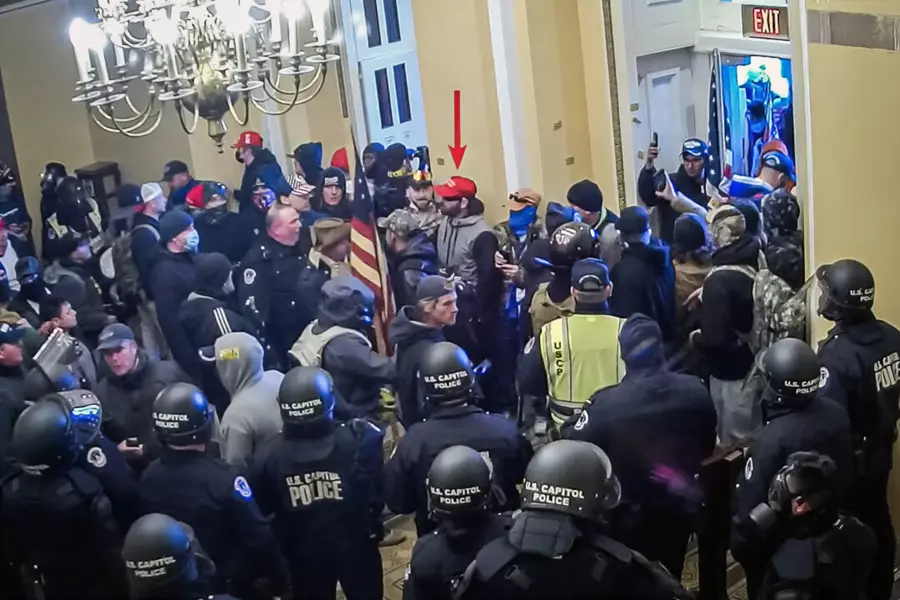The U.S. Department of Justice (DOJ) has recently argued that a probationer convicted for his involvement in the events of January 6th should have his computer monitored and be prohibited from accessing “extremist media” content to prevent the spread of disinformation, according to a recent court filing. The DOJ’s support for monitoring the individual, Daniel Goodwyn, comes after it initially did not request that Senior U.S. District Judge Reggie Walton order a probation agent to oversee Mr. Goodwyn’s computer.

The issue was initially raised by an appeals court, which remanded the matter back to Judge Walton with a warning that if he were to continue seeking to monitor Mr. Goodwyn’s computer use, his order must be narrowly tailored and not infringe upon constitutional protections. In response to this warning, Judge Walton ordered Mr. Goodwyn to show cause why he should not face disinformation monitoring once again, with a status conference scheduled for June 27 in Washington, D.C.
In his court filing, Assistant U.S. Attorney Jason R. Brady argued that imposing the requested special conditions would protect the public from further dissemination of misinformation, aid in Mr. Goodwyn’s rehabilitation, deter him from committing similar crimes, and be narrowly tailored to achieve the goals of sentencing factors. He pointed out that Mr. Goodwyn’s past and present use of social media to deny responsibility and push false narratives related to January 6th supports the court’s authority to impose this special condition.
On January 31, 2023, Mr. Goodwyn pleaded guilty to one misdemeanor count of entering and remaining in a restricted building or grounds without lawful authority. This charge could have resulted in up to one year in prison. On June 6, 2023, Judge Walton sentenced Mr. Goodwyn to 60 days in prison, one year of supervised release, a $2,500 fine, and a $500 restitution payment. He completed his incarceration at the Federal Correctional Institution at Bastrop, Texas, on August 25, 2023.
Under the restrictions proposed by Mr. Brady, Mr. Goodwyn would need to obtain permission from a probation agent before accessing the internet. Additionally, he would be prohibited from accessing, viewing, using, or possessing any “extremist media,” including literature, video, photos, and social media content from groups or individuals who promote violence to advance an ideological or religious cause. Mr. Goodwyn would also be required to immediately report any inadvertent access, viewing, use, or possession of such material to his probation officer.
In their court filing, the DOJ cited the work of Mr. Goodwyn’s employer, StopHate.com, as an example of prohibited propaganda. As part of his role with StopHate, Mr. Goodwyn has worked on several January 6th documentaries. However, defense attorney Carolyn Stewart argued that the DOJ court filing misses the point because Mr. Goodwyn’s admitted crime related to January 6th had nothing to do with computers or disinformation.
Stewart referred to Judge Walton as the “Ministry of Truth” and accused the DOJ of setting a standard that “what DOJ doesn’t agree with is now extremist.” She warned that cases like Mr. Goodwyn’s are a harbinger, stating, “Americans are not getting that J6 cases are test cases. Fictional storytelling by the DOJ equals fact in the biased court. They do not blush when lying through their butts.


